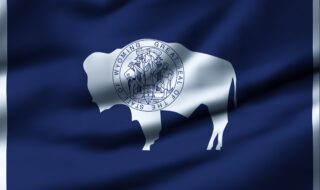Small Businesses Pick Up Promising Wins in U.S. Supreme Court’s 2024-2025 Term
Small Businesses Pick Up Promising Wins in U.S. Supreme Court’s 2024-2025 Term
June 30, 2025
Small Businesses Pick Up Promising Wins in U.S. Supreme Court’s 2024-2025 Term
The Supreme Court’s 2024-2025 term was a relatively quiet one for small business. But that didn’t stop the NFIB Legal Center’s advocacy on behalf of small businesses. This term, the Legal Center participated in 7 cases, representing over 10% of the Court’s total cases. Of our 7 cases from this term, NFIB secured 3 wins, 3 losses, and 1 neutral decision.
“The Supreme Court’s 2024-2025 term was a mixed bag for small business owners,” said Beth Milito, Vice President and Executive Director of NFIB’s Small Business Legal Center. “While there were some disappointing results, the Court’s decisions reining in administrative agencies, protecting access to courts for indirectly regulated parties, and refusing to impose a heightened evidentiary burden on employers for Fair Labor Standards Act (FLSA) exemptions were promising and much-needed victories for Main Street.”
City & County of San Francisco v. Environmental Protection Agency (EPA): This case asked whether the EPA could impose generic prohibitions in pollutant discharge permits that focused on the “end-result” waters instead of the specific discharges of a regulated entity. Agreeing with NFIB’s brief, the Supreme Court concluded that the Clean Water Act did not authorize generic “end-result” water permitting conditions.
E.M.D. Sales, Inc. v. Carrera: The minimum wage and overtime pay provisions of the FLSA can be costly for small businesses, which is why the law also includes certain exemptions from its overtime pay requirements. This case asked whether an employer needed to show by a “preponderance-of-the-evidence” that an employee was exempt or needed to satisfy the heightened “clear-and-convincing” standard. Our brief argued that the “preponderance-of-the-evidence” standard was the proper showing, and the Court unanimously agreed.
Diamond Alternative Energy v. EPA: When administrative agencies issue regulations, like those requiring automakers to manufacture more electric vehicles, do indirectly regulated parties that are harmed by the regulations, such as fuel producers, have the ability to challenge these regulations in court? We said yes, as did the Supreme Court’s opinion.
Laboratory Corporation of America Holdings v. Davis: In a case where businesses needed the Court to make clear that class action lawsuits cannot include uninjured individuals, the Court sidestepped the issue altogether and dismissed the case. NFIB’s amicus brief argued that including uninjured individuals violated constitutional requirements and federal rules. We agree with Justice Kavanaugh’s dissent, which said “a federal court may not certify a damages class that includes both injured and uninjured members.” He recognized that classes “overinflated with uninjured members” can “coerce businesses into costly settlements,” which “substantially raise the costs of doing business.”
Commissioner of Internal Revenue v. Zuch: “[T]he Court’s decision hands the IRS a powerful new tool to avoid accountability for its mistakes,” said Justice Gorsuch, disagreeing with the Court’s decision in this case. We agree with Justice Gorsuch. Our brief argued that the IRS should not be allowed to resort to “self-help” during a taxpayer’s pre-tax levy challenge, and then claim that the same “self-help” disposed of the taxpayer’s legal challenge.
Federal Communications Commission (FCC) v. Consumers’ Research: This case concerned a scheme where Congress delegated legislative authority to the FCC, and the FCC then delegated authority to a private entity, the Universal Service Administrative Company (USAC). Our brief argued that the lower court was correct—this scheme was unconstitutional because it transferred too much authority to an unaccountable nongovernmental entity. Unfortunately, the Court disagreed.
Trump v. CASA, Inc: After a federal district court determines that a law or government policy is likely unconstitutional, can that court block the government from enforcing the law or policy anywhere in the nation? Our business coalition amicus brief said district courts have this authority. Unfortunately, the Supreme Court held that district courts do not have the authority to block a law or policy nationwide and can only issue relief to the parties in the case before them or in class action lawsuits. The impact of this decision will be that the government can enforce questionable laws against small businesses until each small business sues the government directly or joins a class-action lawsuit.
The NFIB Legal Center will continue to protect the rights of small businesses and advocate for their interests at the Supreme Court when its 2025-2026 term begins this Fall.
For questions on any of these cases or other Legal Center activity, contact us at info@nfib.org.
June 30, 2025
NFIB is a member-driven organization advocating on behalf of small and independent businesses nationwide.
Related Articles














